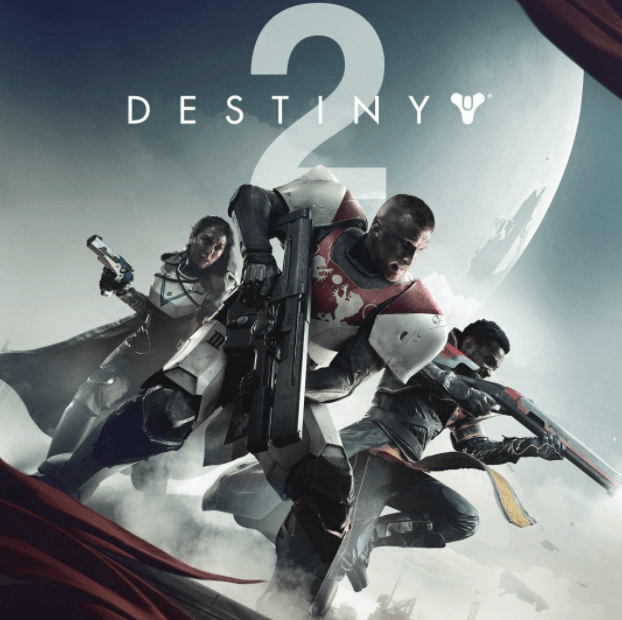 Cheating in video games has become big business. Just yesterday, the BBC reported that police in China had busted the “world’s largest” operation of its type, supplying cheats for games including Overwatch and Call of Duty.
Cheating in video games has become big business. Just yesterday, the BBC reported that police in China had busted the “world’s largest” operation of its type, supplying cheats for games including Overwatch and Call of Duty.
The operation was called “Chicken Drumstick” and reportedly generated around $76m in subscription revenues. However, there are plenty of similar businesses still in action, with others targeted by videogame makers in various legal actions, sometimes centering on violations of copyright law.
In January we reported that a pair of companies behind two of the most popular online multiplayer games had sued a cheat maker in the United States for copyright infringement offenses, among other things. Riot Games and Bungie claimed that through the supply of tools designed to enable cheating in Valorant and Destiny 2, GatorCheats trafficked in malicious software contrary to the anti-circumvention provisions of the DMCA.
Lawsuit Alleged Supply of “Malicious Software”
Filed in a California district court, the lawsuit targeted Albuquerque, New Mexico resident Cameron Santos, the alleged operator of GatorCheats. It also targeted 10 ‘Doe’ defendants, some of whom (“Hal,” “Matt” and “Megan”) were alleged to have provided customer support to cheat users.
Riot and Bungie alleged that while GatorCheats was the largest of Santos’s cheating ventures, others including “Honeyhacks” and “Voidcheaters” were also infringing the gaming companies’ rights. GatorCheats had been served with a cease-and-desist notice by Bungie in November 2020 but the gaming outfit was not convinced that the operation would be shut down.
Trafficking in Circumvention Devices, Other Issues
According to the complaint, the tools and services offered by Santos were compromised of technologies, products, services, devices and components that were designed to circumvent “technological measures that effectively control access” to the companies’ games.
As a result, the defendants were accused of offering to the public, providing, importing, or otherwise trafficking in technology that violates 17 U.S.C. § 1201(a)(2), i.e the anti-circumvention provisions of the DMCA.
In addition to the claimed breaches of copyright, Riot and Bungie further alleged that GatorCheats intentionally encouraged its customers to breach the licensing conditions they had agreed with the gaming companies, which disallow modification and cheating. The defendants were also accused of engaging in unfair competition under California law.
Case Progresses With Response
On March 24, 2021, Santos filed his response to the Riot/Bungie complaint and for the most part, it didn’t provide a particularly useful indication of how the case would progress.
In its final paragraphs, the response suggests that the plaintiffs failed to state a claim for which relief may be granted, that any contracts referenced in the complaint are unenforceable, and that Santos is not subject to the personal jurisdiction of the court. Requesting a trial by jury, Santos also stated that the plaintiffs’ claims are barred by the First Amendment and the doctrine of Fair Use.
Less than a week later, however, a different picture is emerging, with the parties informing the court that they have agreed to a permanent injunction and the payment of a considerable amount to settle the case.
Settlement Including Permanent Injunction
The injunction is comprehensive and prevents Santos from taking any steps (including assisting others) to create, distribute, advertise, market or otherwise make available any cheating software listed in the complaint (and any unnamed software), when that breaches the intellectual property rights of Riot and/or Bungie.
Santos is not allowed to obtain, possess or access cheating software when it infringes the plaintiffs’ rights, including by circumventing technological measures as prohibited under the DMCA. He is also barred from selling, reselling, or processing payments for cheats, and/or sharing, transferring or distributing cheats to third-parties, when they infringe the plaintiffs’ rights.
The defendant is further prohibited from operating or linking to any site providing information to assist others to access or develop cheats, investing in a cheating business, and/or reverse engineering or otherwise manipulating any game owned by the plaintiffs. All social media accounts used to promote cheats must be shut down and all related software destroyed. That leaves the direct financial cost to Santos.
“Judgment shall be entered against Defendant in the amount of two million dollars ($2,000,000), due and payable solely pursuant to the terms set forth in the Parties’ Confidential Settlement Agreement and Release,” the joint stipulation reads.
The agreement to settle the case is yet to be signed off by the court but given the consent of the parties, that is likely to be a formality in the days to come.
The response from Santos and the parties’ joint stipulation can be found here (1,2 pdf)









